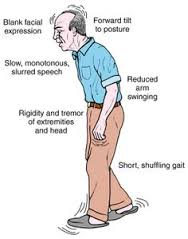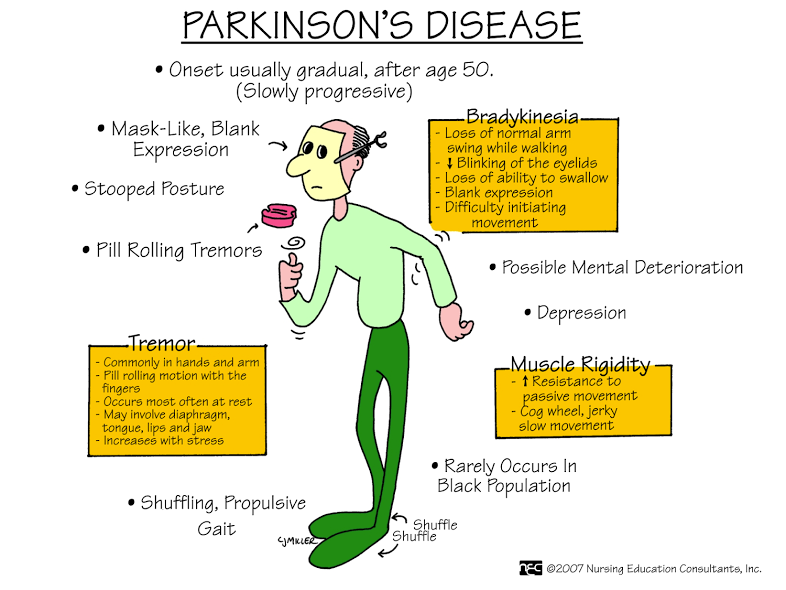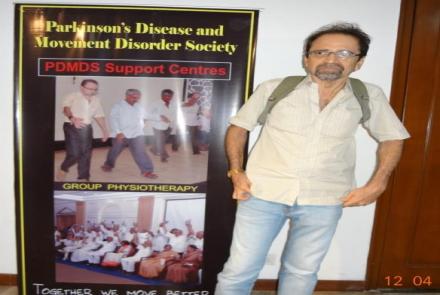Dyskinesia is a term that is used to describe excessive movement which is beyond one’s control.
Scientists believe that the areas in the brain which are responsible for producing movement become over – stimulated. This leads to excessive and unwanted movement.
However, remember that dyskinetic movements are not tremors. Tremor is a symptom of Parkinson’s, whereas dyskinesia is more often thought to be a side effect of Levodopa.
People experience different kinds of…

Dopamine is a Brain Chemical that helps to control muscle movement. In Parkinson's Disease the brain cells that make dopamine slowly die. The resultant lack of dopamine in body leads to physical symptoms such as slowness of movement, unusual stiffness in body, tremors and loss of balance. Depression, anxiety, constipation, speech-swallowing problems are some of the many other affections of Parkinson's Disease.


Changed
04/Nov/2017
Condition
Clinical Features and Diagnosis PDMDS.pdf
(651.59 KB)
















